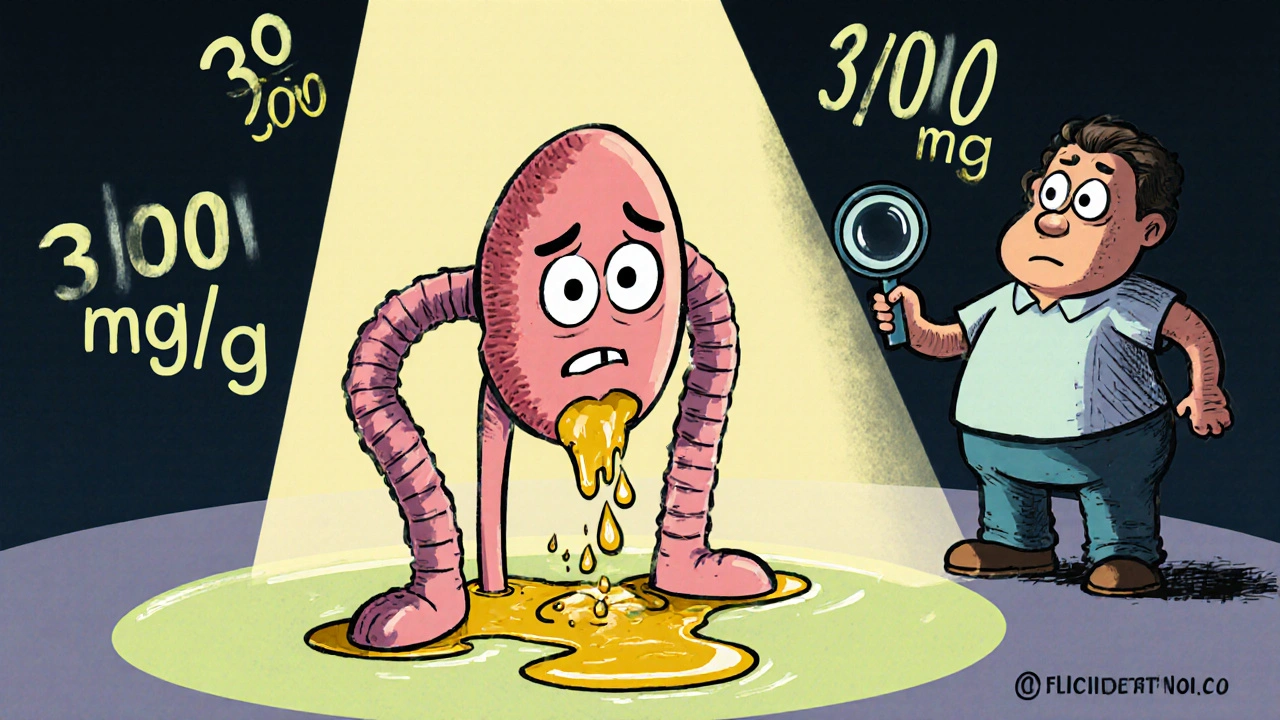UACR: What It Is, Why It Matters for Kidney Health, and What Your Results Mean
When your doctor orders a UACR, the urine albumin-to-creatinine ratio, a simple test that measures tiny amounts of protein leaking from your kidneys into your urine. Also known as urine albumin-to-creatinine ratio, it's one of the earliest and most reliable ways to spot kidney damage before you feel any symptoms. This isn’t a test for kidney failure—it’s a warning signal, like a check engine light for your kidneys.
People with diabetes, a condition where high blood sugar slowly damages blood vessels, including those in the kidneys are routinely tested for UACR because even small increases in albumin can mean trouble is starting. High blood pressure does the same thing. The kidneys filter waste, but when tiny filters get damaged, protein like albumin slips through. That’s what UACR catches. It’s not about big protein leaks—it’s about the small ones that most tests miss. A UACR above 30 mg/g is considered abnormal. Between 30 and 300? That’s microalbuminuria—the early stage. Above 300? That’s macroalbuminuria, a sign of more advanced damage.
What you do next depends on your number. If your UACR is high, your doctor will look at your blood sugar, blood pressure, and other markers. They might adjust your meds—like switching to an ACE inhibitor or ARB, drugs proven to protect kidneys. They’ll also ask about your diet, especially salt and protein intake. You might be told to lose weight, quit smoking, or start checking your blood pressure at home. This isn’t about fear—it’s about action. Catching high UACR early can stop kidney damage in its tracks. Many people with diabetes never develop kidney disease because they caught it early and changed course.
UACR doesn’t exist in a vacuum. It connects directly to what you’ll find in the posts below: how fluid retention in chronic kidney disease ties to rising UACR, how diuretics help manage symptoms once damage is present, and why salt restriction is non-negotiable when your kidneys are struggling. You’ll also see how conditions like addison’s disease and autoimmune flares can impact kidney function indirectly, and how medications like Combipres or amiloride play a role in managing blood pressure to protect your kidneys. This isn’t just a lab number—it’s a window into your body’s hidden stress signals. The posts here give you the real-world context: what to ask your doctor, what changes actually help, and how to track progress over time.
Diabetic Kidney Disease: How Early Albuminuria Signals Risk and Why Tight Control Saves Kidneys
Diabetic kidney disease often starts with silent albuminuria. Early detection and tight control of blood sugar, blood pressure, and targeted medications can prevent kidney failure. Learn how to act before it's too late.






